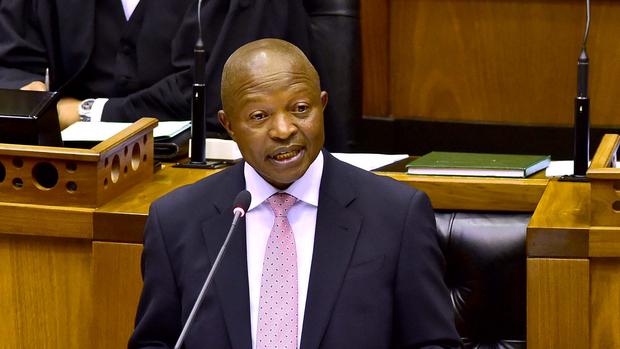
South African Government is pushing ahead in implementing the ring-fencing of certain economic sectors to achieve economic transformation, says Deputy President David Mabuza.
“Among the measures we must practically implement without wasting time is the issue of localisation and ring-fencing of certain economic sectors to achieve real economic transformation,” said the Deputy President on Thursday.
Deputy President Mabuza was speaking at the Broad-Based Black Economic Empowerment (BBBEE) Rural and Township Economy Summit at the East London International Convention Centre (ICC).
He said that by implementing ring-fencing, government will be dealing with existing obstacles to the meaningful and sustainable participation of black people in procurement opportunities provided by government and the private sector.
“We cannot make meaningful progress in this regard, if we do not link procurement to government strategy as a conscious agenda for the revitalisation of township and rural economy,” he told delegates attending the first of the two-day summit.
He stressed however that an economy still exists among the country’s townships and rural areas though it may be small, simple and informal.
“But it can make a significant difference in the lives of ordinary people and so we must treat it with seriousness and determination,” he said.
Government said in its efforts to revitalise township and rural economies, the country must consolidate, integrate and accelerate pockets of work done across government that would meaningfully support supplier mobilisation per economic sector.
While it is common knowledge that township and rural economies are predominantly small and lack the sophistication demanded by the mainstream economy, such barriers must not deter the country.
“That is why we must consider reviewing service level agreements and tender documentation for both consultants and contractors in order to incorporate principles of an enterprise development model that localises the manufacturing and supply of materials,” said the Deputy President.
Bigger companies in the construction sector, he said, should identify and engage local enterprises within communities in which any construction project is implemented.
These local enterprises in turn should be supported by government through supplier development programmes.
Supporting youth owned enterprises
Deputy President Mabuza said government is acutely aware of youth not having the opportunities necessary to grow the economy.
“Our rural areas and townships can also be better served if our young people are trained and encouraged to express themselves and innovate, either for commercial and social pursuit. In our youth, we have bounds of energy, ideas and potential for unlocking prevailing socio-economic challenges.”
He said skills hubs in townships need to be built to give youth platforms to realise their potential while also becoming globally competitive.
“For those of us who are in the Presidential Broad-Based Black Economic Empowerment Advisory Council, we have a responsibility to see these young people on the path to success. We can assist in making them excellent traders, entrepreneurs and industrialists,” he said.
Work conducted by BBBEE Council
Meanwhile, member of the Presidential BBBEE Advisory Council Thami Mazwai said it is important not just to provide financial support to businesses in townships and rural areas.
He said the environment in which township and rural areas small businesses operate in, play a critical role in the development of these businesses.
“When we met as the council, we said we should look at small business in its entirety. You can give a small business markets but it doesn’t guarantee success,” said Mazwai, adding that “our areas have become markets for others” has got to be reversed.
He said that the council in its previous meeting aimed at ensuring the proper framework for the country. That meeting led to the study conducted by the World Bank in 2014 that encapsulated surveying areas such as Diepsloot.
Analysing the data of the World Bank, the Council identified 12 big ticket items which must drive the two-day summit has to thrash out.
Among the 12 items is that policy formulation has not largely taken into consideration the needs of 41 million in rural and townships areas also adding that the World Bank did a study in the 1960s which highlighted a problem of the “missing middle” being small business. This resulted in what Mazwai called “big faith” in big companies.
Industrialists of the future
While in present South Africa this mind-set is changing, the country still has a long way to go in addressing this.
In addition, the country’s major development initiatives were not initially focused on small business.
Mazwai echoed the Deputy President’s comments that South Africa must come to a point where all agree that poverty, high unemployment, and deepening crisis of inequality is not good and is a threat to the sustainability and stability of democracy.
Deputy President Mabuza said the country needs its people to be enterprising and become industrialists of the future.
“We must encourage our people to be enterprising, to see beyond townships of old and into the future as industrialists, as people who will claim the African century, as people who see themselves as job creators and not job-seekers.”
The Deputy President said while economic advances have been made in the last 24 years of democracy, the legacy of colonialism and apartheid is still deeply entrenched in society and continues to manifest in South Africa’s economic structure.
The Summit will conclude on Friday. – SAnews.gov.za
https://www.africaprimenews.com/2018/03/21/news/south-africa-lets-fight-for-our-childrens-rights-deputy-president-mabuza/